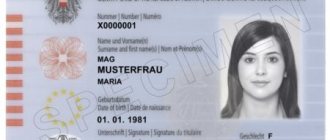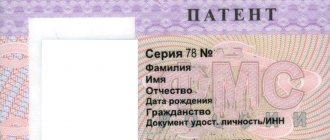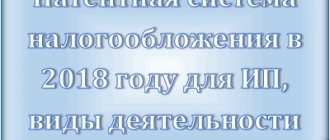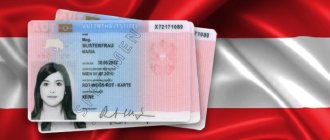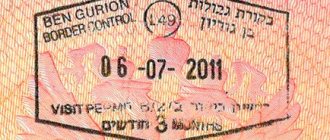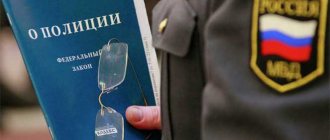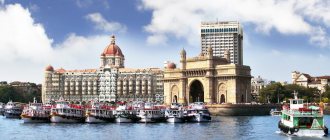Pros and cons of moving to Austria for permanent residence
Immigrating to Austria has its advantages and disadvantages. They need to be objectively assessed before deciding to move. The advantages include:
- gender equality;
- stable and progressive economy;
- the level of medical care is high;
- ecology and climate are favorable for living;
- good social support;
- high standard of living, low unemployment rate;
- high level of education;
- cleanliness – there are clean sidewalks all year round, snow is constantly removed, storm drains work without failure, a huge number of bicycle paths;
- Excellent roads - no traffic jams, the metro works 24 hours a day.
But moving to Austria also has some disadvantages:
- German is difficult to learn;
- the cost of real estate is very high;
- the medical care system is unusual for Russians;
- in large cities there are many parking spaces, and those that exist are quite expensive;
- cruel migration policy - obtaining permanent residence in Austria is quite difficult;
- migrants are treated with distrust here;
- the mentality of Austrians and Russians is noticeably different;
- dear life.
Education in Austria in Russian
Russian-speaking immigrants in Austria are often interested in the opportunity to study in their native language. German is not the easiest language to learn. Therefore, it will be very difficult for a child to keep up with his Austrian classmates.
Russian schools provide an opportunity to keep up with the curriculum and learn German at the same time.
Unfortunately, there is no higher education in Russian in Austria. Although it is possible to study Russian and Russian culture at universities.
Kindergartens for Russians in Austria
At the multilingual kindergarten "Umka" in Vienna, teachers speak three languages: Russian, German and English. There are groups for children under 3 years old (German, Russian-German and English) and from 3 to 6 years old (German, English, Russian).
There is also preschool training in Russian at the gymnasium in Vienna. Classes are paid - 385 euros per month. There is also a group for children aged 4-6 years at the Russian school in Linz.
Finding a Russian-speaking nanny is also easy. Compatriots themselves publish messages about their search: on forums, on social networks, and even on our website in the comments there are job offers.
Someone is officially employed. But usually neither side wants to lose money. Therefore, they work by personal agreement.
School education
In Vienna there is a Russian-language secondary school at the Russian Embassy in Austria. There they complete the entire school curriculum and, like in Russia, take the State Exam and the Unified State Exam.
This option is very convenient for those who are moving to Austria with their family. Not every child will be able to learn German right away.
Russian school at the Russian Embassy in Austria
The Russian-language Vienna school was created for the children of Foreign Ministry employees. They are accepted first. For them, studying is free. Children of immigrants are enrolled only if there are free places, and they have to pay for school.
Svetlana Kuznetsova
Studying, living and working in the EU in Austria for more than 4 years. Happens regularly in other European countries.
Ask a Question
My friends sent their child to a Russian school at the embassy. True, we studied there only for the first 2 years, while simultaneously attending German courses. As soon as the language reached the level, the child continued his studies in a regular Austrian school
Another school where you can get an education in Russian is the Meridian Gymnasium in Vienna (starting price - €175, average - €385).
Here children study literature, history, the world around them, mathematics and history. True, this is more additional education. The gymnasium does not issue a certificate.
Additional courses
- “Elite Lyceum in Vienna.” You can sign up for classes in ballet, drawing, chess, music, acting, etc. One month (4 classes) costs from 65 to 140 euros.
- School of Creative Development at the Russian Gymnasium in Vienna. There are lessons in painting, robotics, Russian history, vocals and classes in a theater studio to choose from. From 395 to 745 euros per semester.
- Russian school in Linz. Offers lessons in Russian language, literature and history.
Each school website has a section with vacancies. If you have a higher education degree, you should send your resume. This could be your “ticket” to Austria, especially if you don’t speak German very well yet.
Attitude of the local population towards emigrants from Russia
Before immigrating to Austria, you need to understand that the newcomer will be a stranger in a foreign country - the attitude of the local population may be somewhat contradictory. Judging by the reviews of foreigners who emigrated to Austria from Russia, the local population is wary of visitors from other countries. The first reason is competition for jobs. Wages in the Austrian state are good, and if a migrant applies for a job, he “automatically” becomes a competitor of a native resident.
The second reason is generous social benefits. Financial assistance to those in need is paid from the federal budget, which is financed by taxpayers. If a newcomer does not work, he receives social assistance. The locals don't like it!
Difficulties do not frighten Russians before moving to Austria. Wanting to get an education and improve their standard of living, Russians tolerate the attitude towards themselves and their children.
The most common methods of immigration to Austria
How to move to Austria for permanent residence on your own? There are several legal ways:
- obtain refugee status;
- unite with family;
- get a job or go to study at an Austrian university;
- investing in the economy or real estate;
- business migration.
Depending on which method of departure to Austria for permanent residence will be relevant, the set of necessary documentation and procedure will differ.
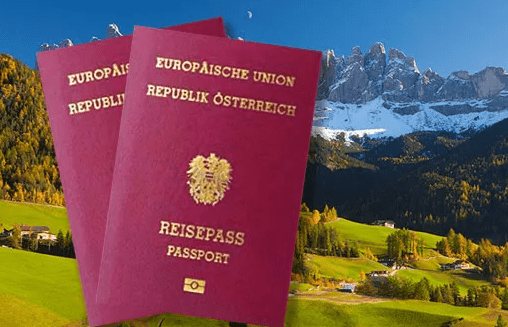
Refugee status
Too many migrants from disadvantaged countries want to stay in Austria forever and obtain refugee status. The influx of illegal immigrants was quite large. Therefore, amendments were made to the migration legislation. They are as follows:
- quotas at the state level for the number of migrants during a certain time period;
- refugee status can only be granted for 3 years.
On the basis of “refugee”, only those citizens who, for objective reasons, cannot live in their homeland are allowed into the country. Such reasons include persecution for political reasons, wars, persecution for religious and other reasons.
The Government of the Austrian state provides such visitors with a full package of social assistance:
- quality medical care;
- employment in various areas, but not always by specialty or education;
- social benefits.
Uniting with family
You can marry a citizen of the Austrian Republic, and on this basis receive an official residence permit. But there are certain requirements for spouses:
- the marriage was concluded at least 2 years ago, the foreign spouse has officially and legally resided in Austria for at least 3 consecutive years;
- family ties were registered at least 1 calendar year ago, the foreigner spouse has been legally residing in the Republic for 4 years or more;
- family relationships were registered more than 5 years ago.
Throughout married life, the marriage will be tested for “fictitiousness.” Afterwards, the migrant must pass exams on knowledge of the national language.
After the specified period, you can apply for a residence permit, and then citizenship. It will be necessary to prove that the marriage is not fictitious. The best evidence is the joint property of the spouses - real estate, a common business, a single bank account.
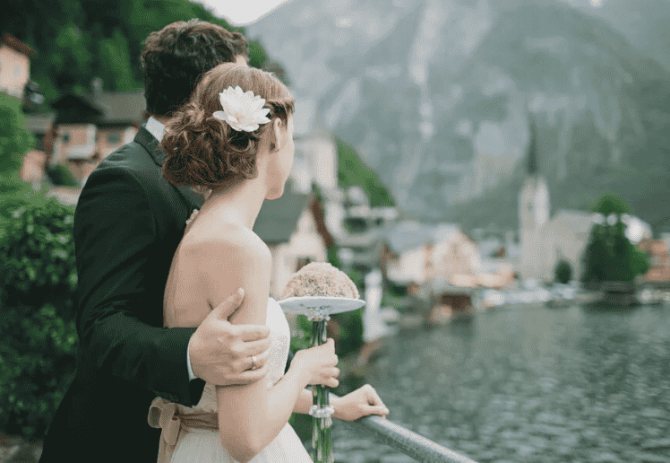
To marry a citizen of the Republic of Austria, you need to prepare a package of documents, which includes:
- a valid foreign passport;
- a document confirming the absence of registered family relations with a citizen of the native state;
- confirmation that the foreigner has registration at the place of residence in the state;
- birth certificate.
The provided papers must be translated into the national language and certified by a notary or other authorized employee.
Marriage to a citizen of an Austrian state is not the only way to migrate due to association with relatives. If another close relative lives in the Republic, then you need to apply for an entry visa. The following documents are required for this:
- an invitation from a relative living in Austria and having citizenship;
- his passport;
- documents confirming the financial viability of the inviter;
- documents for real estate from the inviting party - a certificate of ownership or a rental agreement;
- medical insurance;
- documents confirming the presence of close family ties between the inviter and the invitee.
The invited migrant, for his part, prepares documents according to the following list:
- certificate of knowledge of the German language at a level not lower than A1;
- a complete set of documents for obtaining a Schengen visa.
Work permit
You can legally get a job with an Austrian employer only if you have the appropriate type of visa and permit. You can get a job in any field - the main thing is to have education and work experience. If the foreigner cannot offer any of this to the employer, employment will be for a position that does not require qualifications.
Before starting work, you must issue a work card on which points will be awarded. Their number depends on:
- age of the potential employee;
- level of education;
- qualifications in this area.
Depending on how many points are accumulated on the card, your salary will be set. If there are few points, then the salary will be from 800 to 1000 euros per month. The more points, the higher the salary. Workers with higher education (a diploma must be confirmed), work experience in this field, and appropriate qualifications can earn from 2 thousand euros per month. The upper limit is at a high level.
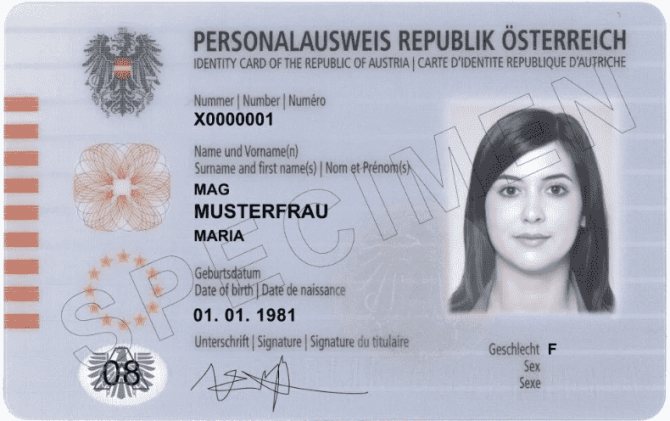
The level of qualification is confirmed by a special test. The following will be credited to your work card:
- 75 points if the applicant for the position shows himself to be a highly qualified specialist;
- 50 points if a potential employee proves himself to be a key specialist or a person with unique professional skills.
To enter Austria and get a job here, you must submit a set of documents to the Embassy, which includes:
- application form filled out in English or German;
- a valid foreign passport;
- medical insurance;
- certificate confirming the fact of birth;
- documents on financial solvency;
- invitation from an Austrian employer;
- photo of the established size and sample;
- housing documents.
You can conclude an agreement with an Austrian employer for a period of up to six months. Upon expiration of the established time period, the contract is extended or terminated by agreement of the parties. A working residence permit is issued for 1 calendar year.
Austrian employers make 2 additional payments to all employees, without exception, during the year - the 13th and 14th salaries.
Immigration for persons living on income from deposits
How to move to Austria on your own if there is a bank account in the state that brings in considerable income? That is, there is no need to work and study here. This relocation option is suitable for wealthy people whose financial condition allows them not to work, but to live a quality life on interest from previously invested funds.
In order to legally reside in the territory of the Republic, you need to present documents for your own real estate, which is located on the territory of Austria (it can be a house, an apartment - the location does not matter), valid health insurance, an extract from an Austrian bank or credit institution located within the European Union. The statement must indicate the amount of the deposit; it is not established by law.
An approximate calculation is based on the number of members of one family who want to move to the Austrian state to live. In 2021, one adult family member will need about 86 thousand € per year, and a child – about 45 thousand € per year.
Business immigration
How can you move to Austria on your own if you have the opportunity to start your own business? In the Republic, such industries as special-purpose mechanical engineering, chemical and automotive industries are actively developing. Local businessmen do not want to invest money in agriculture and agriculture.

Foreign businessmen are given a wide field of activity to open a business. Some Austrians sell a finished business, not wanting to do it anymore. A new business is opened with the proceeds. Rich businessmen from the countries of the former CIS have a place to invest in order to obtain citizenship of the Austrian state.
But there are segments of the economy into which a foreign businessman will never be allowed - banking, insurance, as well as state monopolies (production and sale of cigarettes, lottery tickets, gambling, public transport).
The most common form of doing business for foreign businessmen is a limited liability company. Austrian legislation is structured in such a way that it is easiest to open an LLC, conduct business and close an enterprise of this form of ownership.
To open your own LLC, you need to have at least 35 thousand euros - this is the minimum authorized capital. If there is not enough money, the state can help and contribute up to 50%, then this money will need to be returned. The authorities give foreign businessmen a tax break - you don’t have to pay taxes on employees’ wages for one calendar year after opening a company.
Alternative options for moving for permanent residence to Austria
In certain cases, Austrian citizenship is obtained automatically. Such cases are:
- Birth in Austria;
- Adoption by an Austrian family;
- Marriage with an Austrian citizen (the period for obtaining citizenship is reduced to 5 years);
- Residence in the territory of the state in question for 30 years;
- Availability of citizenship of another state that is part of the European Union (there is a simplified program for obtaining second citizenship in the EU).
One of the European Union states whose citizenship is not difficult for a citizen of the Russian Federation to obtain is Romania. Obtaining Romanian citizenship is a simpler and faster procedure than obtaining Austrian citizenship. The following advantages should be highlighted:
- No knowledge of the Romanian language is required;
- There is no need to live or have your own property; Citizenship is issued immediately, without an intermediate step, which is a residence permit;
- When accepting Romanian citizenship, there is no need to renounce existing citizenship. Thus, it is possible to retain citizenship of the Russian Federation.
A prerequisite for obtaining Romanian citizenship is the presence of documentary evidence that the ancestors of the interested person on the maternal or paternal side lived in Romania until 1940 inclusive. It is worth noting that this refers not only to the modern Romanian state, but also to Moldova and part of Ukraine. To obtain Romanian citizenship, these citizens must adhere to the following algorithm of actions:
- Collect the necessary evidentiary documentation (if necessary, restore lost documents through the archive);
- Contact the Citizenship Department of the Romanian Ministry of Justice (in Bucharest or Iasi);
- Wait for the decision on granting the status of a Romanian citizen.
If the authorized consul makes a positive decision, the new citizen takes an oath in the building of the consulate or citizenship department, after which he is solemnly presented with a certificate of citizenship. Further, this citizen has the right to apply for an internal or foreign passport of Romania.
Documents for Romanian citizenship
To apply to the Ministry of Justice of Romania on the issue of obtaining citizenship of this state, the interested person must prepare documents from the following list:
- Identity card (foreign passport);
- Internal passport;
- Birth certificate;
- Documents evidencing civil status (marriage certificates, divorce certificates, etc.);
- An application to the Romanian consulate detailing the reason for obtaining Romanian citizenship;
- Evidence showing that the applicant’s ancestors lived in Romania until 1940 (birth certificates, death certificates or surviving passports of relatives, archival extracts, confirmation of degree of relationship);
- Certificates of no criminal record in Romania and the Russian Federation;
- Documents of the applicant's father or mother, whose relatives lived in Romania before 1940.
In the case of obtaining Romanian citizenship for a child under the age of majority, the following additional documents must be provided:
- Birth certificate of the offspring;
- Power of attorney and written consent from the second parent, if the interests of the child are represented only by the mother or father.
Attention! Each of the documents presented above must be accompanied by a notarized translation. Applications and petitions to the Romanian consulate are submitted exclusively in Romanian.
A package of documents can be sent to the consulate or department of the Ministry of Justice for Citizenship of Romania either personally by the applicant for citizenship or by his official representative on the basis of the appropriate power of attorney.
The process of obtaining a residence permit in Austria
The Austrian authorities are responsible for obtaining a residence permit for the Austrian state. You must submit documents in Russia - through a visa center or through the embassy in Moscow. To obtain a residence permit, you must meet certain requirements:
- have a good reason for moving to the Republic - study, work, family, etc.;
- be financially independent and be able to prove this - there must be enough funds in the account to live in the state;
- You cannot violate the visa regime - stay and residence in the country must be legal.
It is necessary to prepare a set of documents, some of which should be translated into German, and have the translation notarized. Make copies and also have each copy certified. Russian documents must also have an apostille. Registration of a residence permit is a lengthy process and can take several months. Therefore, in order not to violate the visa regime for staying in the country, documents for obtaining a residence permit or extension must be submitted in advance.
Step-by-step instructions for obtaining a residence permit of the Austrian state:
- check yourself for compliance with the requirements - it is recommended to visit a magistrate;
- create a set of documents;
- visit the magistrate, take the application form from the employee, fill it out correctly;
- pass an exam on knowledge of the national language (not in all cases);
- wait a while;
- get a plastic card - issued at your place of residence in Austria.
Required documents
To obtain a residence permit of the Austrian state, a Russian needs to prepare a set of documents, which includes:
- application form filled out in English or German;
- a valid foreign passport;
- photo according to EU standard (35*45);
- a certificate of income and the source of its receipt;
- documents for housing - a lease agreement or a certificate of legal property rights;
- certificate of no criminal record - issued by the Ministry of Internal Affairs at the place of residence in the Russian Federation, valid for no more than 3 months;
- medical policy with a coverage amount of at least 30 thousand euros - the insurance must be valid on the territory of all countries included in the Schengen Union, it must also cover all risks to the life and health of the traveler, including winter types of spots, a minimum validity period of 4 months, in Austria it will be necessary enter into an agreement with a local insurance company;
- a certificate confirming the fact of registration of family relationships or their termination;
- if the applicant changed his last name, a document is needed on the basis of which this fact occurred;
- the basis for coming to the Austrian state is an invitation to study, to work, from a private person;
- Sometimes it is necessary to present the results of an exam on knowledge of the Austrian language at least level A2.
Where to apply
You need to contact the Austrian Embassy in Moscow or a visa center in your city. An application form that must be filled out correctly if on the official website of the Embassy. You can download it, print it and fill it out yourself.
To submit documents, you must first make an appointment. Documents and citizens are not accepted without an appointment. If the applicant is late for the appointed time, he will have to register again.
Terms and cost of registration
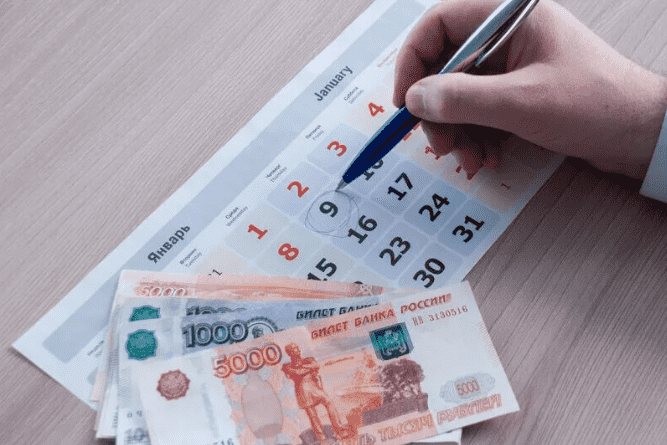
An application for a residence permit is reviewed within one month. But before you go to Austria, you need to get a visa. Therefore, it may take about six months to complete the documents. Before applying for a residence permit, you must pay a consular fee of 120 euros. The receipt must be attached to the set of documents for obtaining a residence permit.
An additional fee is charged for translating documents into German, certifying the translation in a notary office, making copies and notarizing them. Official documents require an apostille.
If it is not possible to independently obtain a residence permit, you can contact a company that provides such services. But you have to pay. In Moscow and the region, the cost of such services is about 10–12 thousand rubles.
Paperwork
Obtaining a residence permit in Austria was more difficult than entering a university. I started with a letter to the embassy to clarify the list of documents. It was quite standard, and if you are interested in what exactly, then read our article about obtaining a visa and student residence permit in Austria.
At that time, the most difficult thing was finding housing. I needed to provide a rental contract for a year to obtain a visa. At first I hoped for a dormitory, but all the places were already given to exchange students (Erasmus program).
To conclude a contract with a landlord in Austria, you need to pay a deposit (600-1,500 euros) for the first month of rent. It’s somehow scary to transfer such money to a stranger, and I didn’t want to overpay for the services of realtors.
The university assisted in the search. Firstly, they gave a list of verified sites. And secondly, they gave us access to a group on Facebook, where locals (and the students themselves, who decided to terminate the contract) were looking for tenants.
So I found myself an apartment, or rather a room in a private house. The option was not the best - a 30-minute walk to the university, and there were 5 other people in the house. Four on one floor and two on the other. But it was not so expensive - only 295 euros per month.
Documents for a residence permit can be submitted only at the Austrian Embassy in Moscow. There you can make an appointment and arrive exactly at the appointed time. There is no formal interview. You go to the window and give all the documents in order, as the embassy employee says.
It is worth taking both originals and copies of all documents with you. They asked me to see the original letter from the university, but they only took a copy.
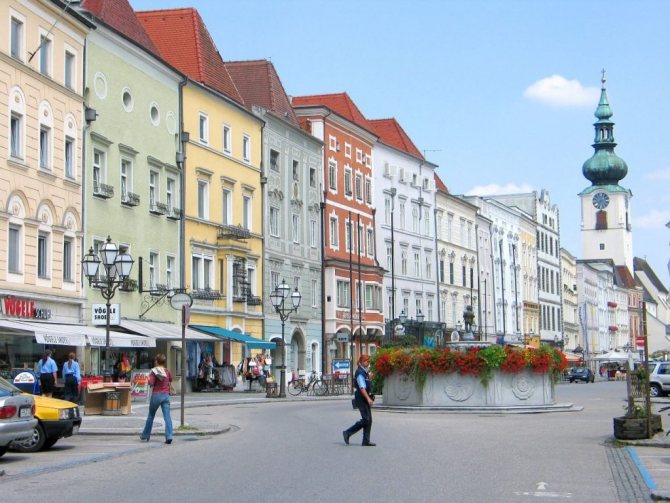
The city of Wels, where I was to study, is very small (60 thousand people), so the residence permit was approved faster than if I lived in Vienna or Salzburg
I submitted documents 4 months before the start of my studies. But I already found out the answer after 2 months. This is because the documents are reviewed not by the embassy, but by the migration service of the city in which you will live. My university was in the small town of Wels, I think that’s why I received the answer so quickly.
But the residence permit itself is not obtained in Russia. After the documents are approved in Austria, an appointment is made at the embassy, where a single-entry D visa is placed in the passport to enter the country. But the residence permit card is waiting for you at the magistrate office, which you need to pick up after your arrival.
Obtaining Austrian citizenship
The next step after the residence permit is obtaining Austrian citizenship. If there is no need for an Austrian passport, you can live legally in the Austrian state for the rest of your life, constantly renewing your residence permit.
Registration of Austrian citizenship implies renunciation of native citizenship. An exception may be made in the following cases:
- for world-famous persons praising the state;
- for those who became an Austrian citizen by being born here;
- migrants, if their home country does not allow the alienation of their native citizenship;
- pensioners who will lose the right to receive pensions in their home country;
- refugees who, due to circumstances, cannot renounce their native citizenship.
Therefore, not all migrants agree to give up their native passport; they live their entire lives in Austria with a valid residence permit. There are several ways to obtain citizenship of the Republic of Austria. This:
- birth on the territory of the state;
- as a result of registering a family union with a person with an Austrian passport;
- by investing in real estate or business;
- method of naturalization;
- in cases considered as exceptions.
By birth
If a child is born in Austria, he has the right to obtain citizenship of this country. But there are several nuances:
- if the mother has citizenship of the Austrian state, then the issue is resolved as soon as possible;
- if the mother is a subject of another power, and the father is an Austrian, then he will have to recognize the child as his own.
It is not so difficult for an Austrian father to recognize a child as his own. Simply fill out the application form. If the Austrian father does not want to recognize the child, the issue is resolved in court. Information about him will be included in the birth certificate.
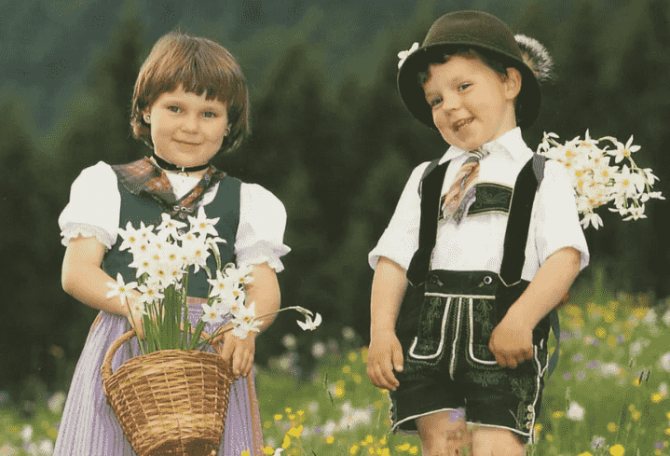
Naturalization
This is the longest route for migration, but most visitors take it. The main condition is to live legally in the republic for at least 10 years in legal status. It is mandatory to pass an exam on knowledge of the national language, as well as be tested on knowledge of the laws and culture of the country. You also need to have a job that brings a stable income (mandatory proof of solvency to obtain Austrian citizenship).
Legal stay for ten years means that the migrant must have a valid residence permit or permanent residence. To obtain Austrian citizenship in this way you must:
- live legally for at least 10 years;
- have no criminal record, debts, do not break the law;
- mandatory to have an official job - at least 3 years in the last 6 years;
- financial solvency – the migrant’s account must have at least 30 thousand euros;
- knowledge of the national language at least level B1;
- knowledge of the historical facts of the state, laws and culture;
- renounce national citizenship.
Family reunion and marriage
You can obtain an Austrian passport by entering into an official marriage with an Austrian citizen. To become the owner of the main document, you must not only become a member of the Austrian family, but also prove that the sconce is not fictitious. To marry an Austrian, you need to provide the following documents:
- a valid foreign passport;
- a document confirming the absence of registered family relations with a citizen of the native state;
- confirmation that the foreigner has registration at the place of residence in the state;
- birth certificate.
The main condition is to live together in the Austrian state for at least 5 years. Throughout married life, the marriage will be tested for “fictitiousness.” Afterwards, the migrant must pass exams on knowledge of the national language. After passing the test and exam on your knowledge of the culture, history and laws of the country, you can apply for a passport.
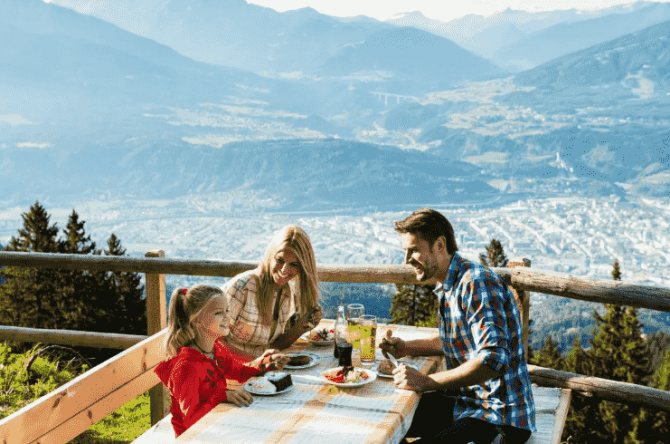
Investments
The government of the Republic of Austria issues passports to foreigners who invest money in the country's economy. But the amount of the investment contribution is large:
- 3 million in European currency to the state treasury;
- or invest 10 million units of EU currency in a growing Austrian business.
Each candidate for an Austrian passport is interviewed. There are no uniform standards for migrants.
Reviews of emigrants from Russia who moved to Austria
Marina: “I came to Austria 5 years ago on a student visa. Received the profession of a doctor. I work at a local clinic as a surgeon. The attitude towards medicine here is not the same as in Russia. I rent an apartment not far from work. But it was difficult to find housing - the attitude towards migrants here is quite wary. But Russians are treated better than visitors from other countries.”
Oleg: “The cleanliness is amazing - in winter the snow is removed even before people start going to work. There are trash cans everywhere, and cleaners are constantly working in parks and squares. The showers work properly. Local residents clean up after their pets on the street, which is something you don’t see in Russia.”
Nikolai: “Life is very expensive in Austria - prices for renting an apartment and food are quite high. I work as a programmer, but I barely have enough money. I save a little for travel. I want to see Europe. I applied for a passport."
Russian diaspora in Austria
There are no special Russian districts in Austrian cities. People live where it is convenient, good conditions or simply cheap. But this does not prevent compatriots from finding each other and communicating.
Svetlana Kuznetsova
Studying, living and working in the EU in Austria for more than 4 years. Happens regularly in other European countries.
When I visit large cities: Vienna, Salzburg, and the same Linz; I hear so many “my people”, as if I’m not in Austria at all. There are a lot of Russians, Ukrainians, Belarusians, and Kazakhs here, and most importantly, they are always ready to help.
They will tell you everything and show you everything. Of course, not all are immigrants, some just came to Austria on vacation.
Cultural events
Russian actors, singers, musicians, and comedians come to Austria with their programs.
Most often, such events take place in Vienna, Salzburg, Graz and Linz. Sometimes you can even find showings of Russian cinema.
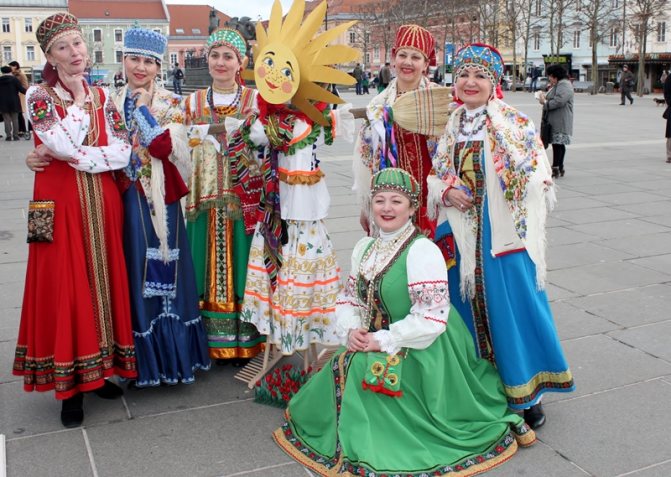
How Russians celebrate Maslenitsa in Austria
On the website of the Russian Center for Culture and Science there is an announcement of cultural programs in Austria: competitions, festivals, concerts. There you can also find dates for thematic meetings for compatriots.
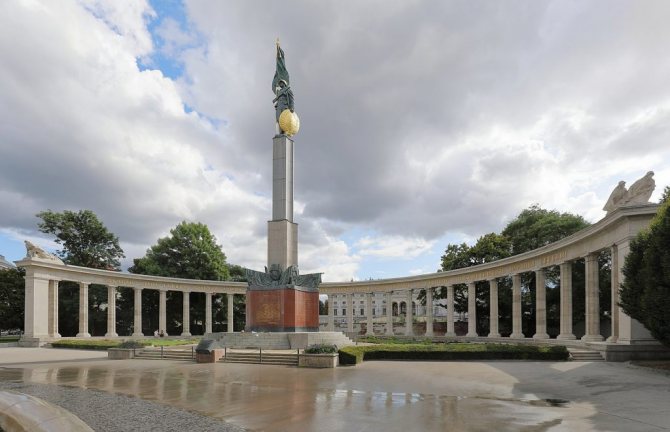
One of the attractions of Vienna is a monument to Soviet soldiers who liberated Austria from fascism
Russian Orthodox Church in Austria
Most Austrians are Catholics.
But there are active Russian Orthodox churches in the country:
- St. Nicholas Cathedral in Vienna;
- Church of the Intercession of the Blessed Virgin Mary in Salzburg;
- Church of the Intercession of the Blessed Virgin Mary in Graz;
- Church of the Holy New Martyrs and Confessors in Linz.
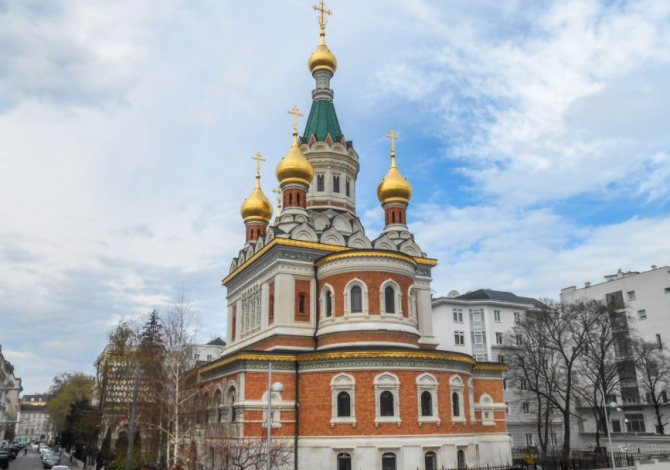
St. Nicholas Cathedral in Vienna
Russian stores
Russian stores sell everything that you won’t find in Austria: condensed milk, sweets, herring and even Baltika beer.
Some of the products are imported from Russia, but for some reason the dumplings in most stores are made in Germany.
There are also Russian cafes: Nikolay Bar, the Stolichny restaurant in Vienna.

Pies in a Russian cafe in Austria
Prices in such stores are slightly higher than in Russia (for example, one kg of sweets costs 25-30 euros). There is no point in buying them all the time. They don't sell a standard grocery basket.
There are several such stores in Vienna, one each in Salzburg, Linz, Wels, and Graz.
The owners are most often Russian-speaking and try to hire compatriot salespeople. Therefore, in such stores you can see the inscription “We speak Russian.”
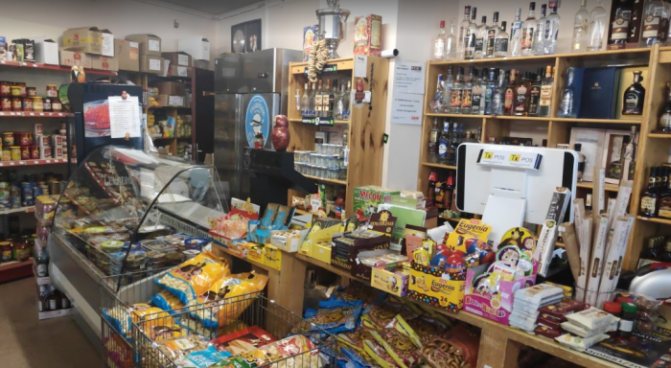
Inside the Russian corner store in Vienna
Austrians also sometimes go to Russian stores. As they say themselves, they just want to try something new. Just like with Asian, Indian and Arab markets. True, in restaurants with Russian cuisine you can see more locals.
Read on our website: food prices in Austria in 2021.
Business in Russian in Austria
In Austria you can find almost any Russian-speaking specialist. Lawyers, doctors, tutors, realtors, nannies - everyone is trying to make a profit through the Russian diaspora. And they succeed.
Not all immigrants to Austria speak German well, so they will give preference to a company where employees speak Russian.
Beauty professionals (manicure, makeup, haircuts, coloring) from Russia and the CIS are especially popular here.
Some work only from home with the same Russian-speaking clients, others open their own salons. The price-quality ratio is much better than that of Austrian masters.
Business in Austria is described in detail in an article on our website.
